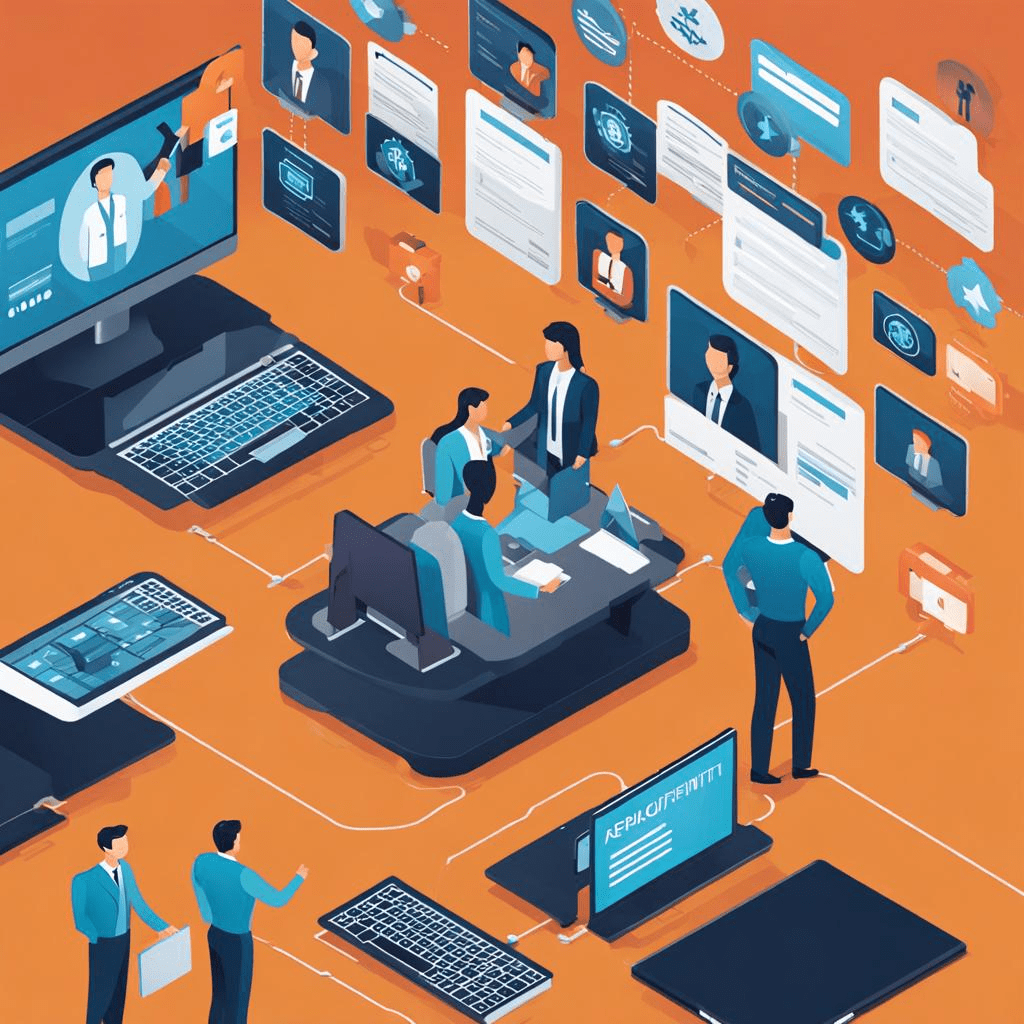The adoption of Artificial Intelligence (AI) in recruitment agencies is reshaping the hiring landscape, offering innovative solutions to streamline the recruitment process, enhance candidate matching, and improve overall operational efficiency. This case study examines the integration of AI within a recruitment agency, focusing on candidate sourcing, resume screening, and interview scheduling as key applications. It will discuss the challenges faced, the AI solutions implemented, and the outcomes of such initiatives.
Background
Recruitment agencies are tasked with the critical role of matching the right candidates with the right job opportunities. The industry is data-driven, with a need to process vast amounts of information quickly and accurately. AI presents an opportunity to automate repetitive tasks, analyze large datasets, and provide insights that can lead to more informed decision-making.
AI Use Cases in Recruitment Agencies
Candidate Sourcing
AI can be leveraged to source candidates more effectively by analyzing job descriptions and identifying the necessary skills and qualifications. Machine learning algorithms can then match these criteria with potential candidates from various databases and online platforms, increasing the speed and accuracy of the sourcing process.
Resume Screening
Resume screening is a time-consuming task that AI can significantly expedite. AI-powered tools can scan and evaluate resumes against job requirements, ranking candidates based on their suitability. This not only saves time but also helps reduce unconscious bias by focusing on objective criteria.
Interview Scheduling
Coordinating interviews can be a logistical challenge. AI-driven chatbots and scheduling tools can interact with candidates to find suitable times, manage calendar invites, and send reminders. This automation reduces administrative workload and enhances the candidate experience.
Challenges and Solutions
The implementation of AI in recruitment agencies comes with its own set of challenges. One major challenge is ensuring the AI systems are trained on diverse and unbiased data to prevent perpetuating existing biases in hiring. Another challenge is integrating AI tools with existing recruitment software and workflows.To address these challenges, recruitment agencies can partner with AI vendors that prioritize ethical AI practices and offer solutions that are compatible with common recruitment platforms. Continuous monitoring and human oversight are also essential to ensure AI tools function as intended and support fair hiring practices.
Outcomes and Future Directions
The successful integration of AI in recruitment agencies can lead to significant benefits. AI can reduce the time-to-hire, increase the quality of candidate matches, and allow recruiters to focus on more strategic tasks such as candidate engagement and relationship building. As AI technology advances, we can expect more sophisticated applications in the recruitment process, such as predictive analytics for candidate success and AI-driven career pathing for employees.In conclusion, AI has the potential to revolutionize the recruitment industry by automating routine tasks, providing deeper insights into candidate capabilities, and enhancing the overall efficiency of the recruitment process. This case study illustrates the transformative impact AI can have on recruitment agencies, setting a precedent for others in the industry to follow suit.


